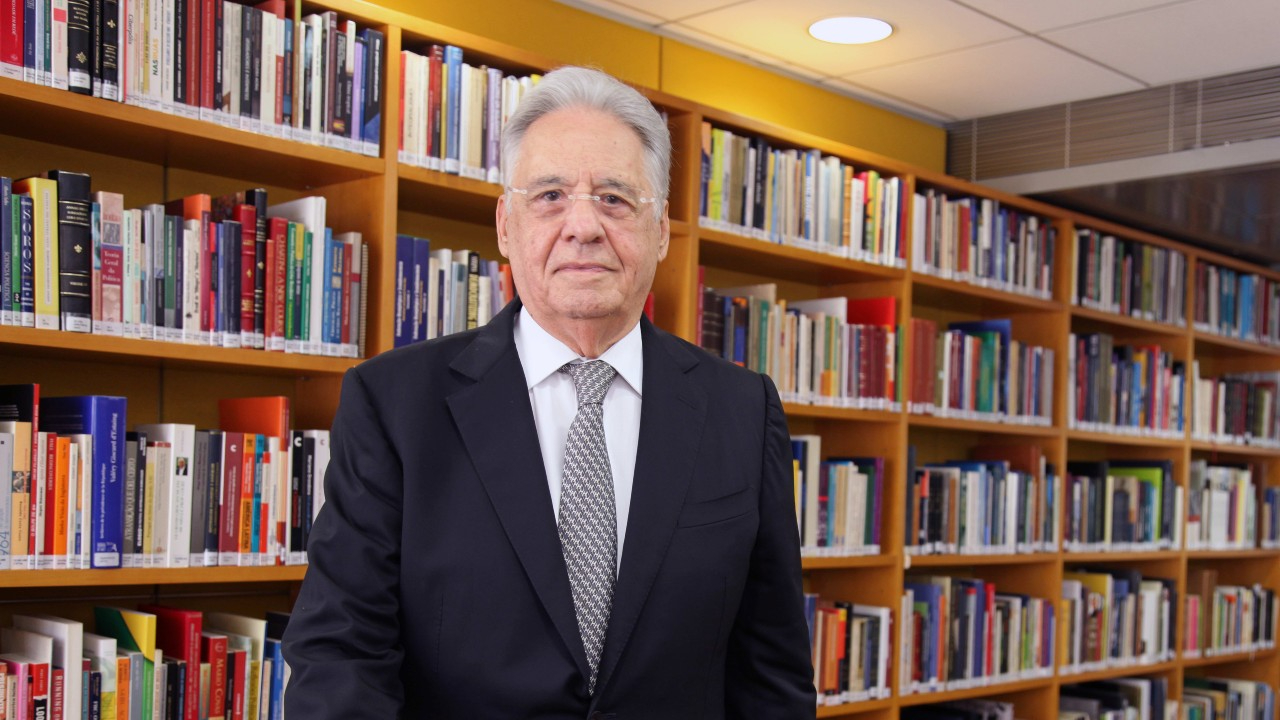I am delighted to introduce an honorary graduate who is an inspirational international leader. Fernando Henrique Cardoso is a leading Brazilian sociologist, professor and politician who served as the 34th President of Brazil from 1995 to 2002. Without doubt one of the most accomplished intellectuals in his field FHC, as he is often referred to, has worked in collaboration with some of the most prestigious universities and academics and won numerous honours and prizes for his contribution to academic research.
His most famous work, Dependency and Development in Latin America, argues that under-development in Latin America is the direct result of the intervention of capitalist economies rather than a pre-ordained condition. It rapidly became a core reference for generations of students of international politics and social sciences and is still on our reading lists today. Narrowly avoiding arrest in the 1964 military coup, FHC went into exile in Chile and France before returning to Brazil in 1968. On his return, he founded the Brazilian Centre for Analysis and Planning, solidified his reputation as one of Latin America’s leading academics, and became a prominent member of the democratic opposition to the military-dominated regime, both as an intellectual and as a political activist until the end of the military regime in 1985.
With the tentative re-emergence of democracy, he was elected to Senate, and played a key role in the drafting of the new democratic constitution. He was a founding member of the Brazilian Social Democratic Party (PSDB) in 1988, serving as party leader in Senate and later as Minister of Foreign Affairs and Minister of Finance from 1993-4. Throughout this time, he established a strong reputation not only for pragmatism and efficiency, but also for reconciling differences (conciliacão) – characteristics vital in holding together the fractious and difficult political coalitions in Brazil at the time.
In 1994 he became president, and subsequently the first Brazilian president to be re-elected for a subsequent term in 1998, with large majorities in both elections. Over his eight-year presidency, he sought to balance the economy, and while his austerity measures were controversial given his political background, he managed to successfully break the cycle of hyperinflation and lay the basis of the future modernisation of the economy. He also worked to address the enormous socioeconomic inequality in the country, establishing programmes in basic provision of food, healthcare and education for the poorest sectors. His presidency was also noteworthy for the significant institutional advances in addressing the legacy of human rights abuses under the military regime.
Since he stepped down from the presidency in 2002, FHC has continued to remain active in politics and academia, writing and giving talks throughout the world on issues of peace, human rights, drugs policy and deforestation. His international reputation, which was always strong, has continued to flourish.
The legacy of this great academic, pro-democracy activist and politician is one of individual and collective commitment to the possibility of change: As he said in an interview in 2016: “I think that what’s important in life is to have hope. To believe that it is possible to change things. I think for those who are interested in politics, they have to hold on to that — not to adjust to today’s world, but to try to change it.”
I present to you Fernando Enrique Cardoso, who is eminently worthy to receive the degree of Doctor of Science, honoris causa.
